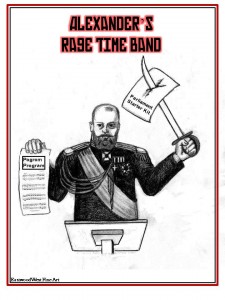On This Day in 1492….
Posted in General, On This Day on March 31st, 2009 by Eugene Finerman – 9 CommentsPart I
Why Disraeli Was Not Prime Minister of Spain
Isabella of Castille was an idiot; it is not an usual condition in royalty. Her husband Ferdinand of Aragon actually was bright and completely free of scruples; Machiavelli considered him a role model. However, Ferdinand turned out to be a little too clever.
He had a get-rich-quick scheme. The wily and avaricious king commissioned a Spanish Inquisition in 1483 with the idea of gouging wealthy suspects who showed any reluctance toward pork. Of course, the bulk of the loot would go to the crown. The Inquisition, however, was not content to be Ferdinand’s pickpocket. It was going to save Spain from tolerance, innovation and whatever else reeked of heresy. To his dismay, Ferdinand could not control the Holy Office’s pyromania. He became its most comfortable prisoner, complying with the rabid dictates of the Grand Inquisitor. While the rest of Europe had the Renaissance, Spain had the Inquisition.
On this day in 1492, a pious Isabella and an intimidated Ferdinand ordered the expulsion of Jews from Spain.
If Mel Torme and I had ghostwritten the proclamation, it would have been the following:
“Heretics roasting on an open fire.
Embers singeing Marranos.
Dies Irae being sung by the fire
While Luth’rans scream in their death throes.
Everybody knows where the Inquisition hangs its hood
They’re record sales on kindling wood.
So always do what those monks ask of you
Or else you will be barbecued.
If the friars find you lack
The proper faith they will put you on the rack
So on their good side be sure to stay
And go to Mass 12 times a day.
Just keep on offering your yearly tithe.
Its’ fire insurance on your life.
And on Ash Wednesday you can gloat in your pew.
The ash won’t be from you.”
Part II
Ole Vey!
Out of mischief or masochism, I wondered what the Catholic Encyclopedia had to say about Tomas de Torquemada. Would modern Catholic scholarship admit that Spain’s Grand Pyromaniac was a monster, claim to never have heard of him, or equivocate over the meaning and context of mass-murder? Take a wild guess!
The Catholica Encyclopedia concedes that Torquemada was somewhat controversial and, perhaps from a modern perspective, a tad cruel. However, the Encyclopedia quibbles over the number of his victims: it couldn’t be 20,000, probably not even 6,000, say 2,000 tops. Who would think that Catholic scholars would act like Jewish wholesalers? In fact, that was exactly what Torqumada feared. According to the Encyclopedia. he was trying to protect Spain from being “Judaized”.
Apparently, he burned the most infectious 2,000, 6,000 or 20,000 people and saved Spain from that dreadful fate. But what if he had failed? Just imagine a Judaized Spain.
In 1492, Columbus was commissioned by their Most Sephardic Majesties Fred and Bella to sail west to China, where he was to pick up two orders each of chicken cashew, mongolian beef, and hot & sour soup. Naturally, he was to bring back the receipt.
During the 16th century, the countries we now know as Ladino America are overrun by armies of peddlers. The Aztecs are persuaded to buy Popeil cutlery for their human sacrifices. In Cubala and the Rabbinican Republic, the most promising athletes are enslaved by sports agents.
Of course, Spanish art is equally transformed. El Greco’s Transfigurations now depict a 13 year-old becoming a man. The princesses painted by Velasquez will seem much more annoying. And no one will ever call himself Goya.
Literature will also reflect this Judaizing. Hemingway’s Death in the Afternoon will convey the pageantry, drama and danger of an all-you-can-eat brunch. Of course, the masterpiece of Spanish literature is Cervantes’ Sancho Panza, the comic epic of a rotund schlep who hangs around a demented gentile for excitement.
Oh, and the Spanish Civil War was a lawsuit.

